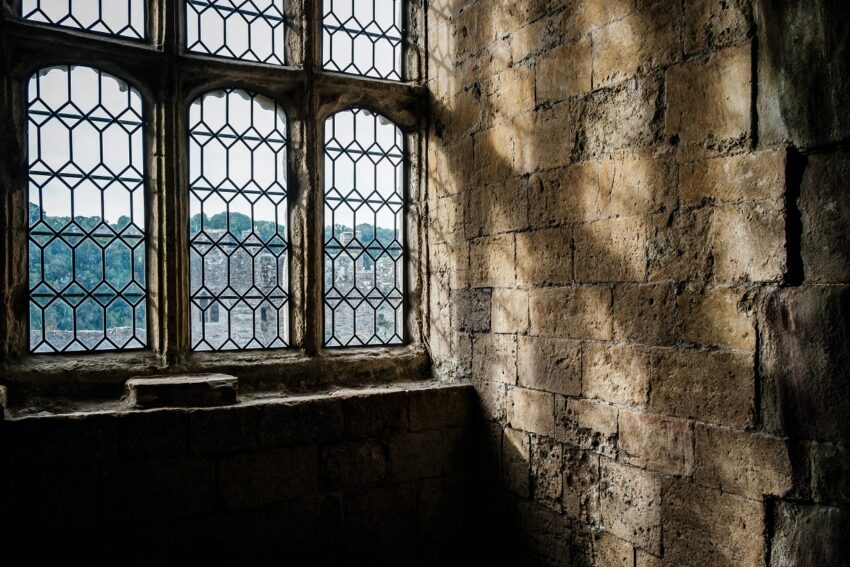Female Intuition.

Or, What I’ve Learnt About Questioning
I used to teach all day on a Friday. Six long hours of presenting, questioning and monitoring. Half the lunchtime cleaning the blackboard. The other half getting the chalk off my clothes.
Finishing the day with Year 7 felt like the final push. On the Friday in question, we were learning about Medieval castles. I’d started by ‘getting the glue out’ and allowing them a minute or so to obsess over neatening the edges of the castle picture, then still sticking it at a weird angle, which when ‘repositioned’ tore a hole out of the page in their book. But we managed to put down the glue, face the front, and begin what I imagined was a discussion which would spark the creativity and curiosity of these young minds.
My question was this: How, year 7, do you think you would go about getting INTO this Medieval castle? Pleased with the deceptively simple yet multi-layered opening gambit, I waited for the answers to roll in.
First hand almost immediately: “You’d just jump over the walls!” Err, not really Daniel, because as you can see, they are pretty high! Murmurs of dissent; clearly Daniel’s scaling plan was thought to have merit. Next hand: “I’d set a trap so when the castle-people came out I’d LUNGE at them and….” Well, yes, I admire your courage Sam but that’s not actually addressing the issue of these very thick walls! Who else?
This started to go from bad to worse, with a buzz developing in the room as the suggestions became wilder: “I’d dress up and pretend to be….” Pretend to be what, Stacey? We’re not trying to trick them into opening the doors! The walls, year 7! How would you penetrate these thick, thick walls? You’d put what in the moat to frighten them Kirsty? But there are no crocodiles in England! And you’re the one trying to get IN!
I was losing the crowd. So it was with some relief that I saw the next hand go up.
Let’s call her…. Lucy.
Some context: Lucy arrived either late or mysteriously early to class. She carried an overflowing school bag from which was (eventually) pulled a chewed biro and dog-eared exercise book. Lucy seemed to float in a haze. But look over her shoulder to see what she’d written and it was often a work of genius. Sometimes she’d answer my questions with such insight I thought she’d climbed inside my head. I readied myself for this castle-conquering conversation to really take off.
‘Yes, Lucy. How would YOU go about getting into this Medieval castle?’
Lucy half closed her eyes and looked slightly upwards as if the answer was gradually revealing itself: ‘Would you use…..female intuition?’
Use WHAT? Female intuition?! ‘Lucy’, I wanted to say, ‘have you not listened to the answers we’ve heard over the last 20 minutes? I wanted you to save me and you give me female intuition?’
It was then I did what I should have done at the beginning of the lesson. What Lucy lacked in castle-storming knowledge she more than made up for in pedagogy. The students knew nothing about the attacking and defending techniques of late Medieval England. They were plucking ideas from their own fairy-tale-inspired imaginations, so it was no wonder the answers were wrong. They were guessing.
And guessing is not a route to learning. Ollie Lovell noted on a recent episode of his ERRR podcast that unless students have high-quality information – something to think about – they will struggle at the most basic level. What we want instead is to control the point at which they struggle. When we are intentional about this, students gain a foothold onto much deeper, richer conversations.
Once I explained the concept of the trebuchet and the battering ram, the scaling ladder and medieval mining we started to see how castles evolved to withstand attack. How buttresses strengthened otherwise weak stone walls, how crenelations provided cover for defenders. I could introduce the development of concentric walls and the students grasped their purpose in relation to increasingly powerful medieval weapons. Then the really great questions came – from the students this time – using what they knew, to know more.
I never did find out what Lucy’s plan was to intuit her way into the castle. But I often think about her, no doubt conquering the world now with her powerful, feminine ways. She taught me a lot about questioning, and how knowledge is the real way to get over those castle walls.


